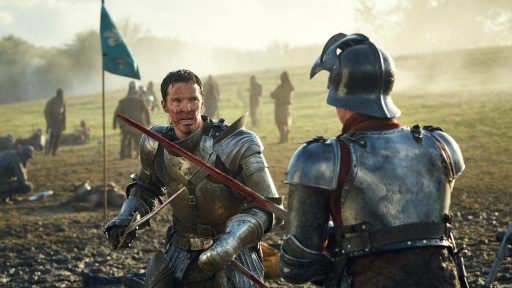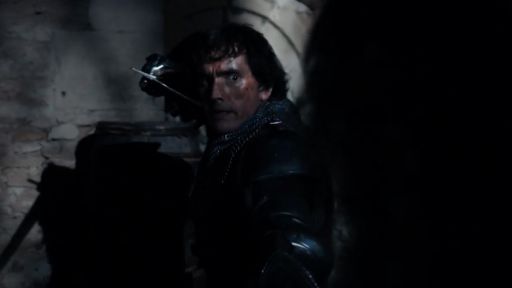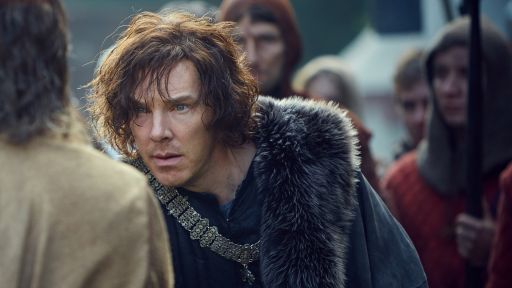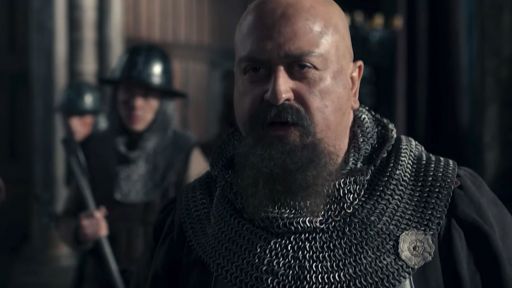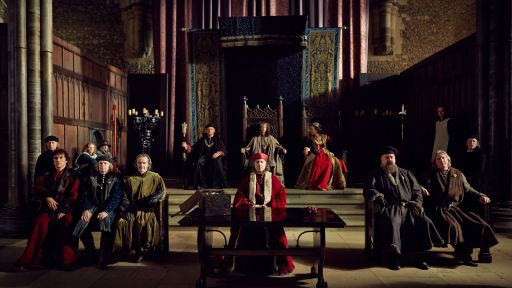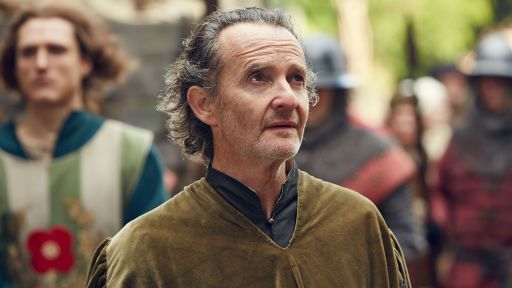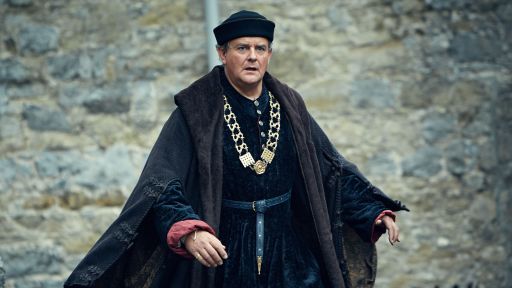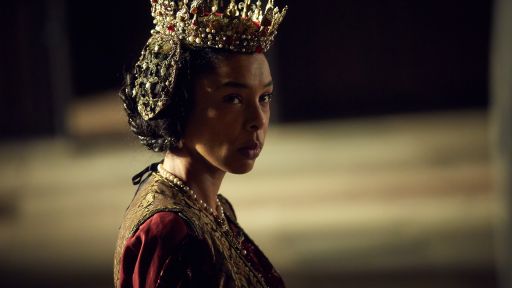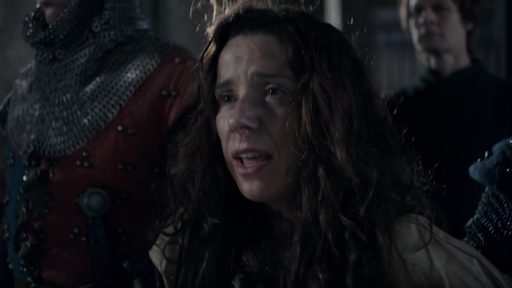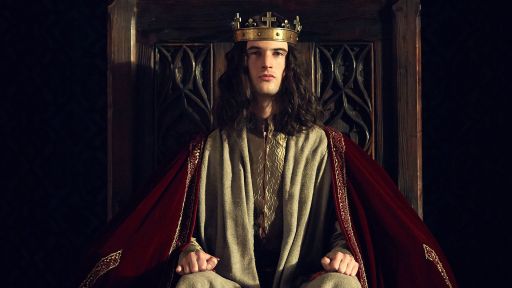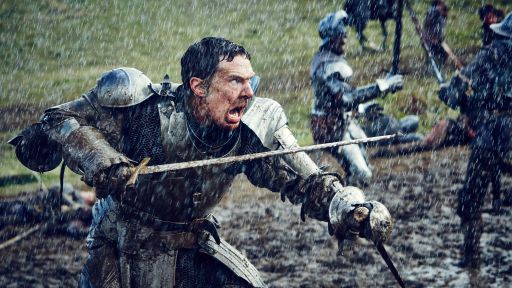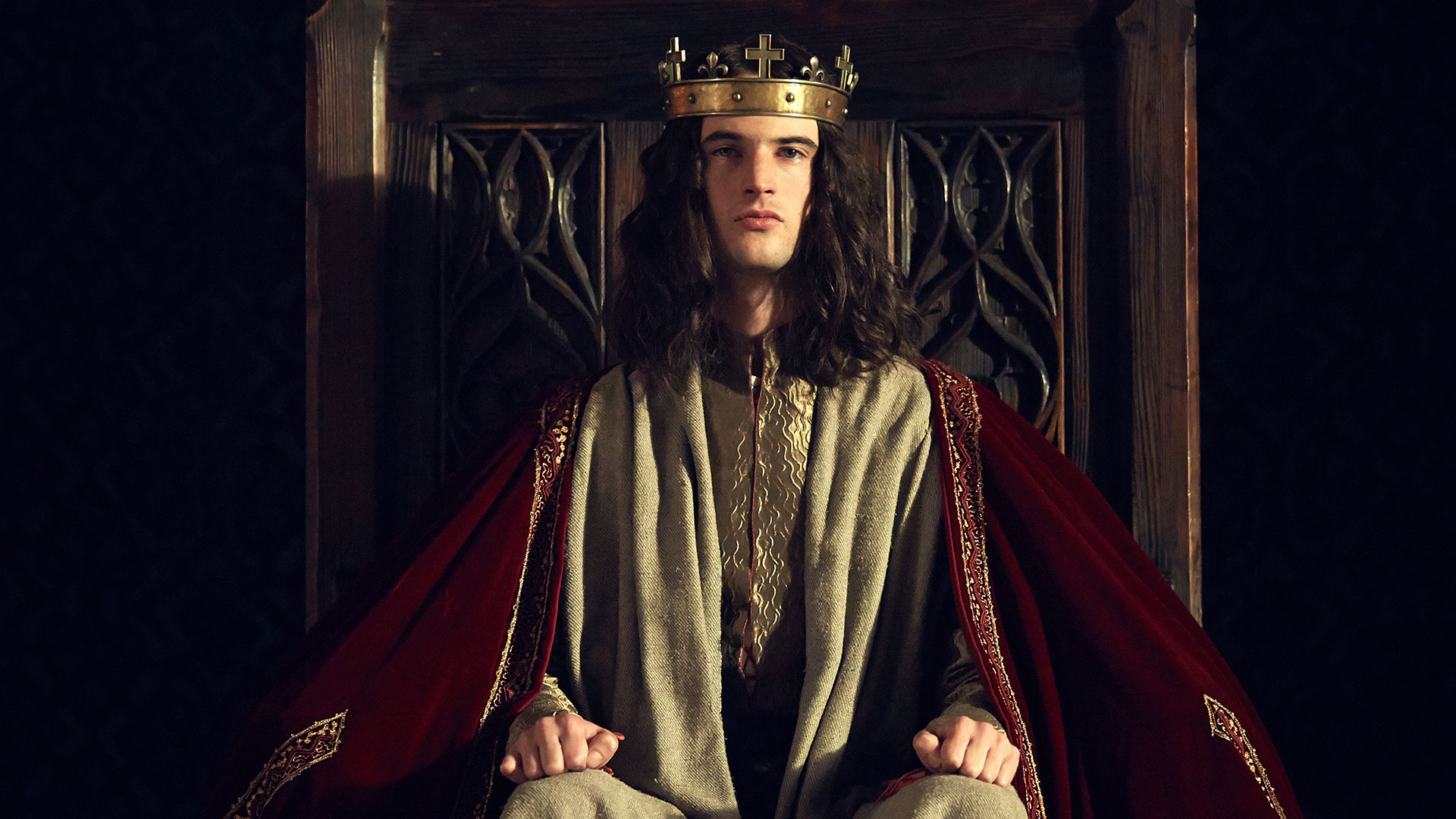
Tom Sturridge (as HENRY VI) in “The Hollow Crown: The Wars of the Roses Henry VI (Part I).” Credit: Robert Viglasky © 2015 Carnival Film & Television Ltd
What was it about this series and Henry VI specifically that made you want to do it?
First of all, it was a play which I didn’t know at all. I think very few people know it, so unlike with a lot of Shakespeare, people don’t come to it with preconceptions. It didn’t feel like you were taking on the burden of the long history of those characters, which is exciting, for something which is so beautifully written and extraordinary.
Dominic Cooke has also always been someone whose work I’ve admired. He was clearly so passionate and articulate about the project. In the landscape of Shakespeare, that’s the first thing you need when you have no idea what you’re doing.
What was it like playing Henry VI?
It was the question of how to play the transformative period of becoming a man. I always think that period between the ages of 18 and 24 is such a bizarre stage, and the two people at either end are always very different. The first word that always came into my head with Henry VI was empathy. He doesn’t have a barrier between what other people feel and what he feels.
I think his perceived flaws as a king are to do with his great genius, which is that he can hold these two conflicting ideas in his head and have love, essentially, for both parties. That was considered weak at the time, because it means he can’t make decisions in the aggressive-minded way that is required in medieval England. Despite wearing the crown, Henry’s place is not to be a king. His primary evolution is through that realisation. He says at the end that all he wants to do is spend his last days in devotion.
What’s your history with Shakespeare?
It doesn’t exist! My experience is doing Macbeth for GCSE coursework and that’s as far as it goes. I’ve never done it as an actor. I didn’t really act in school and I didn’t go to drama school, so I didn’t have the opportunity to do it in an amateur way.
How did you prepare for the role?
I found that the more I’d done Shakespeare, and the more I trusted my instincts and applied the same rules you would apply to any scene, the closer I got to how it’s meant to be acted. I think that ultimately people articulate the truth in relatively similar ways, no matter when it’s written.
We worked with a Shakespeare voice coach who was helpful for understanding the rules about iambic pentameter and rhythm and emphasis and all of that kind of stuff.
Trying to be clear with what you want to articulate, as Dominic says, is the way to really make your points. As a Shakespeare character, if you can persuade someone in a sentence or a speech, you’ve got it right.
I can’t describe the difference I felt going into work in week eleven compared to in week three. Certain anxieties had gone by then! The time spent with the role was extraordinarily helpful.
Does it help you to look at the real historical character?
I realized very quickly that reading the history books was not helpful. The scripts, although they are Shakespeare’s words, have a very strong authorial voice of their own, which is difficult to articulate because they are only impressed upon you as you read them. That decision-making felt important to honor, not anything else. I didn’t even look at the original plays.
Shakespeare is a strange one, where because so many other people have played the part, you have the opportunity to watch other people play it. But it’s such a weird thing to do. I can’t imagine how it would be helpful in any way. It would only make you deeply depressed!
What was it like working with such a stellar ensemble cast?
It takes the pressure off! Things are always easier with talented people around, in all walks of life, simply because you support each other. In acting I react honestly to people who are behaving honestly.
What’s it like working with Benedict Cumberbatch?
I’ve never worked with him before though I’ve known him for a long time. It’s clear that he’s a bizarrely and exquisitely talented person!
What’s your character’s interaction with Margaret?
In a strange way, that’s where I felt the most space in the script to be interpretative. We very easily could have been two people who meet at the beginning and don’t love each other at all. I could be an asexual person. She could have already formed relationships with Somerset and so on. Or we could start off as two characters who have potential. That was exciting for the two of us, to both consciously and subconsciously form that relationship and find our own path.
What’s it like working with Dominic?
Dominic is just brilliant at two things. You need someone who can pull the ideas out of you, but also someone to have better ideas themselves. Directors giving notes is such a difficult thing, but he gives them really well.
What’s it like being on location?
With Shakespeare, if you’re in a room, you start saying the words in a certain preconceived way. If you’re standing half-naked covered in blood and mud and you are saying the words, all of that goes out of the window!
Do you enjoy the battle scenes?
Henry, unfortunately or fortunately, is not the most physical of characters. I have not been charging around on horses with swords. But I always like to be distracted from acting. My favorite scenes are scenes where you’re in the middle of the ocean swimming. You spend the entire time trying not to drown, and you forget about trying to act well. As with everything, I just have to think about something else.
Do you hope this program will make Shakespeare more relevant to a wider audience?
It will definitely offer them something, because I think the plays are really, really good. As far as a new audience goes, by definition it will because very few people have seen Henry VI. It will be on television, so more people will watch it. They should, because from what I’ve seen, working on a day-to-day basis, people are doing something really special, and there is nothing more exciting than watching a great actor doing some of his best work.

